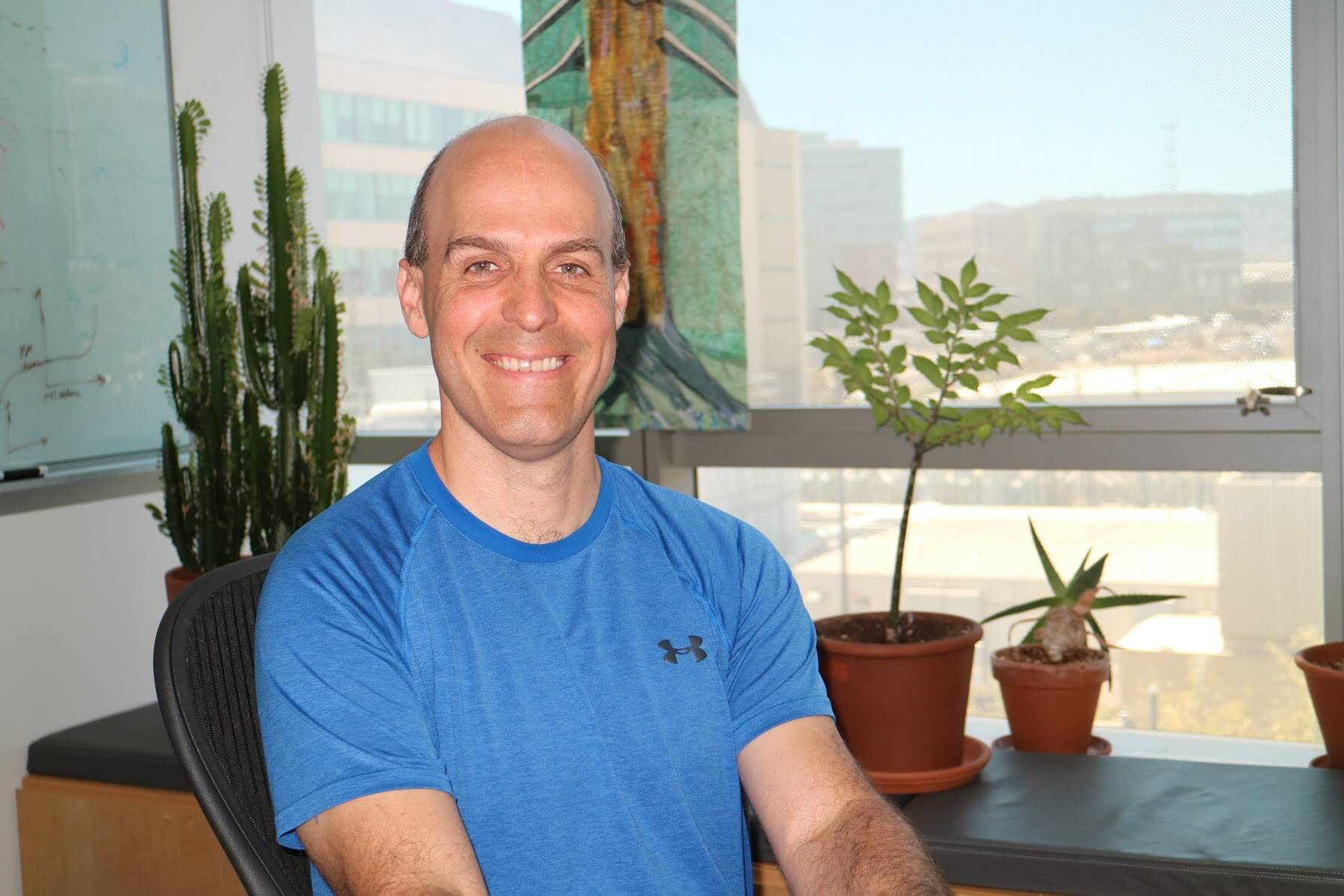
Q: In a couple of sentences, tell me about what you do in your work.
A: Our lab is interested in how cells regulate movement, primarily focused on immune cells and how they are able to interpret their outside world to be able to get to sites of injury and infection.
Q: What’s your favorite part about being a scientist?.
A: Guiding the students through their own moment of discovery when they realize some aspect of how the world works that nobody else knew before. I work with 4 postDocs and 8 graduate students.
Q: What have you created or discovered that you are most proud of?.
A: In order for cells to move, they have to form a single front, and for they have to have a way that one front communicates with the rest of the cell. Before we started working on that project, most people thought that that communication occurred via molecules moving back and forth. We uncovered a surprising role for physical forces that help different parts of the cell communicate. It changed our way of thinking about the currency that the cell was using.
Q: At the end of the day, why does your work matter?.
A: The overall system that we mainly focus on is immune cell movement, and misregulation of immune cell movement underlies many if not most diseases, from cancer progression to autoimmune disorders, which are all based on misregulation of the immune cell movement. So understanding more about how the cells move and how to get them to stop moving has a lot of implication for human health.
Q: Outside of work, what do you do to relax?
A: Hiking, backpacking, rock climbing. So I enjoy nature to the level of Yosemite as opposed to the level of one cell, as I do during the week. I really try to protect my weekends as much as I can. I work hard during the week, but on the weekends, unless I have a deadline, I try to take off and hang out with my family.
Q: What situation do you think you’d feel the most out-of-place in? What is something that makes you uncomfortable?
A: A city council that is being very incompetently driven and where I have very little control over the process. Basically, things that are handled poorly without soliciting input I find unbelievably frustrating.
Q: In 100 years, what do you want to be remembered for?
A: Different fields have very different environments. Some are more collegial and some are incredibly competitive. Some people in terms of training their people try to set them up to try to establish a field on their own and make discoveries, and others “eat their young.” Hopefully, through my own students and my interactions with the field as a whole, I’ve created a vibrant, interactive and healthy community.
Journalism credit: Alexa Rocourt